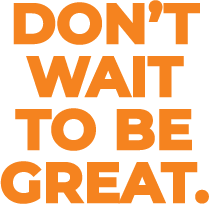Before you can plan anything you first need to define, what you want?
For some people this is easy, for other not so much. You may need to describe what you don’t want, then simply look at the opposite to define what you want. This maybe an easy task for you or it may take some considerable time to ponder and consider what is possible and what really matters. You even may need help.
Once you have defined, what you want, you are now able to work out how you can achieve it.
If you have developed a 5, 10, 15 and 20 year personal or business vision. Well done. As no one knows what the future holds, you can’t know everything that is going to happen between now and your chosen timeframe, but you do know change is constant.
I would therefore recommend setting targets for the next 12 months so you have something to aim for, then review at least annually so you can review progress, results, trends, lessons learnt etc. A great question to ask would be, what does success look like in the next 12 months? From there reset your targets for the year ahead.
Once you have clarity on your 12-month targets, you can then ask the question, what would it take to achieve these targets, this will lead to a list of strategic projects required. I would prioritise these strategic projects in order with timeframes required to achieve your targets.
It’s important to note that if you are busy in your life, career or business you may not be able to see the forest for the trees because you are “in” it. Therefore, I would highly recommend you get a professional, a third party who can see things clearly that you can’t. They can add some invaluable professional insight and expertise to your strategy especially if you lack any knowledge and experience in where you are heading. Sometimes you don’t know, what you don’t know.
Each strategic project may need to be unpacked to identify the project scope, resources, activity, and finances required unless it is simple and straight forward. You will need to break down how we measure progress monthly, weekly and maybe even daily. From here stay focused, do the work and guard against distractions, review, and fine tune the strategy so you can achieve your targets.
You may have heard the saying “If you fail to plan, you plan to fail”, I don’t believe anyone plans to fail but that’s what ultimately happens without a plan. I have seen so many people drift through life without a strategy, do their best to react well to the given circumstances in front of them, as reactions accumulate where they end up becomes an accident. A vast majority of people that hit retirement age are dead, disabled or dead broke, left trying to survive on very little income and having to reconcile how they ended up there.
Have you ever wondered why successful people achieve more than others?
They are more intentional, they know what they want, define a plan to achieve their targets. They invest in getting access to the right knowledge and support, they maintain consistent focus, do the activity and back themselves without any thought of quitting. They are generally no smarter, no more resourced, no more skilled and no more capable than you when they started out.
What does success look like for you?
Do you have a plan?
Would you like help?
As a performance coach I have been working with Leaders and Businesses since 2005, helping them to achieve personal and business success. If you have any questions or would like some help or get more information. Go to www.robertmiller.co.nz or email Robert rm@robertmiller.co.nz



